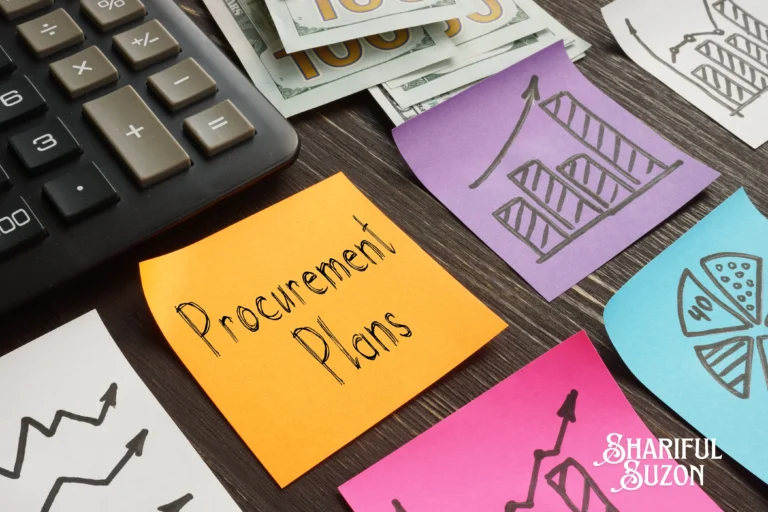Comprehensive Public Procurement Services for Effective and Transparent Solutions
In this era of science and technology, business activities and institutions have become more complex and competitive. Public procurement services are very important in modern business. They help governments and public-sector organizations acquire goods and services efficiently and transparently.
A proper public procurement strategy can promote cost-effectiveness and service delivery efficiency in the public-private sector. This strategy leads to macro-economies of scale and thus fosters economic growth. This article will analyze public procurement services for effective and transparent solutions.

What is the Public Procurement Service?
Public procurement refers to the process of acquiring or purchasing products, goods, services, or work by state-owned enterprises for public sector organizations. State-owned enterprises can buy products, goods, and services or work from international or local markets. The government’s laws and regulations fully guide this purchasing process to make it more transparent, competitive, and fair for everyone. Public procurement services include tender activities, supplier evaluation, contract management, and risk assessment activities.
What is the Relevance of Public Procurement Service
Public procurement services include purchasing products, goods, services, or work, tender activities, supplier evaluation, contract management, and risk assessment activities. They also include making strategic decisions to positively impact public resources and public service delivery. An effective public procurement’s primary role lies in its ability to ensure transparency, efficiency, competitiveness, and economic growth. Have a detailed look.
Ensuring Transparency: A structured public procurement procedure includes clear guidance and selection criteria. That can effectively reduce corruption and ensure transparency.
Improve Efficiency: Proper and streamlined procurement processes save time and costs for public organizations, which helps government machinery offer better services to citizens.
Ensuring Competition: An open, participatory, and competitive procurement process gives all eligible suppliers a fair chance to participate. This helps governments ensure the best use of public funds.
Economic Growth: Effective procurement may promote economic advancements to the next level with proper support and use of local businesses and industries. This will also ensure the participation of most industries in the country’s overall development.
An effective public procurement process can help the government take proper economic measures and ensure the provision of public services to its citizens.
What can Maximize the Benefit from Public Procurement?
Some key parts of the public procurement process can maximize the benefits for the government. Keeping these key parts in place will help to ensure public service. These key parts are discussed below;
Clear and Consent Policies
A clear set of policies and guidelines defines the procurement process’s success. These policies and guidelines must define the procurement procedure, the roles and responsibilities of stakeholders, and the criteria for selecting a supplier. Consistent policy application must be fair and transparent.
Effective Tendering Process
According to this view, the tendering process is the very soul of public procurement. Efficiency in the tendering process requires clear communication of the requirements, reasonable submission deadlines, and the use of electronic procurement systems for easier submissions and evaluation.
Effective Supplier Management
Effective supplier management includes quality assurance and on-time delivery. With a devised fallback plan in place, the government can manage suppliers effectively by evaluating and maintaining a long, trustworthy relationship with them.
Strong Contract Management
One of the most important processes of public procurement is contract management. It involves monitoring the performances of the contracted parties to resolve the arising issues in a timely manner during the active contract period. This will also help evaluate the efficiency of contractors.
Risk Management
To avoid delays, overruns, and other project issues, it is necessary to identify and manage the risks of the procurement process. It would be better if the risk management process included mitigation strategies and regular review and upgradation of the risk management plan depending on the potential threats of procurement.
These above-described elements are important to maximizing the benefits of the public procurement process, which can lead to a progressive economy.
What are the Best Practices for Public Procurement Service?
To ensure effective and transparent procurement, state-owned enterprises or public organizations should emulate the best practices. These below-described practices are often pegged on international standards;
E-Procurement
The e-procurement process becomes much more effective and transparent by means of automation process of procurement process. It allows online submission of bids, real-time tracking, and easier communication between suppliers and governments through e-sourcing, e-tendering, e-auctioning, e-ordering, and e-informing.
Training and Capacity Building
As procurement-related technology and regulations change frequently, continuous training of procurement officials is necessary. This will help build capacity in the required fields for the effective management of the procurement process. Building capacity to make the procurement process more efficient is one of the best practices.
Stakeholders Engagement
Engaging with all stakeholders, including suppliers, end-users, and the public, will ensure that the procurement is responsive to the needs of the parties concerned. It will also build on trust and transparency between all the stakeholders.
Monitoring and Evaluation
Continuous monitoring and evaluation of public procurement processes can make them more trustworthy and transparent to all stakeholders and partners. This can be achieved through tracking KPIs (Key Performance Indicators), which include cost savings, timelines, and supplier performances.
State-owned enterprises’ practice of these best practices will make the public procurement process more transparent, trustworthy, and efficient.
What are the Challenges in Public Procurement Service?
There is no doubt about the importance of the public procurement function. However, it has been burdened with a number of challenges that can hamper its efficiency.
Bureaucracy
Too much paperwork or files characterizes bureaucratic and complex administrative procedures. This will surely slow down the procurement process, leading to inefficiencies and delays.
Corruption
After bureaucratic administrative procedures, corruption remains one of the most critical challenges that can hound public procurement. Key to addressing this anomaly in corruption-related policy areas is transparency with respect to the highest standards of accountability at every instance in the course.
Limited Competition
In some instances, lack of supplier competition increases costs and decreases the quality of goods or services, which is a bad omen for the procurement process. Ensuring broader participation and encouraging procurement opportunities for all suppliers enhances better outcomes.
Resource Limitations
Government-owned enterprises often work with budgets that reduce the possibility of investments in advanced procurement systems and training programs, which can make the procurement system inefficient.
These are the most common challenges in the procurement system. Except for the described ones, political instability, limited infrastructure and workforce, and lengthy procurement process can hamper the proper practice of the procurement process.
What are the Future Trends in Public Procurement Service?
With the advancement of information technology, most of the things are evolving with emerging trends, procurement process is not an exception to that. New technologies are changing it day by day. Have a look at some of the technologies that are changing the procurement practices;
Blockchain
Blockchain is such a technology that can be used to securely manage transactions of procurement to makes it transparent. It can be used to record all the procurement activities in temper-proof method. In a fully functional system it can help to reduce fraudulent activities in the procurement process.
Artificial Intelligence (AI)
Artificial Intelligence or AI technology is capable to scrutinize data in public procurement, find patterns, and making necessary predictions. It enables officials to carry out more informed decisions and optimizes the strategies of purchasing process from suppliers.
Sustainable Procurement
In procurement system sustainability is turning into a key factor. It means the integration of environmental and social dimensions in the procurement process by preferring the suppliers with sustainable behaviour.
These frontier technology have got the potentiality to make the procurement process more effective, effortless, transparent and trustworthy.
If you’re ready to take the next step in your Tender preparation journey, there’s no better time than now to seek expert guidance. Partnering with a Tender preparation specialist like Md. Shariful Suzon can help you navigate the complexities of the market, make informed decisions, and achieve your financial goals.
You can learn about Property Investment, Tender Management, Government Liaison, Contract Management , Project Development, HR management
Would you like to hire me for consultation?
Elevate your property investments with me as your dedicated consultant. Contact me to turn visions into profitable realities.
